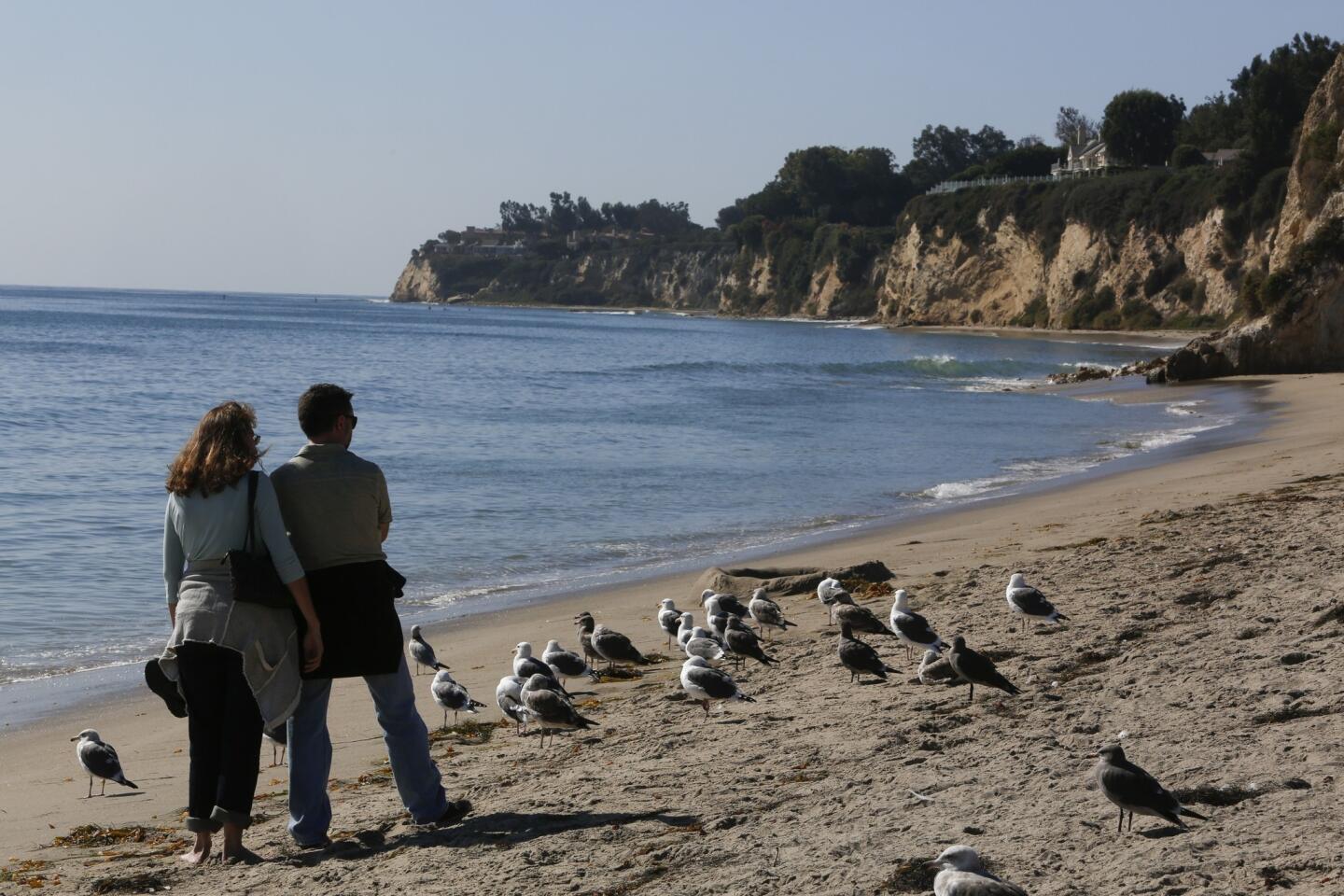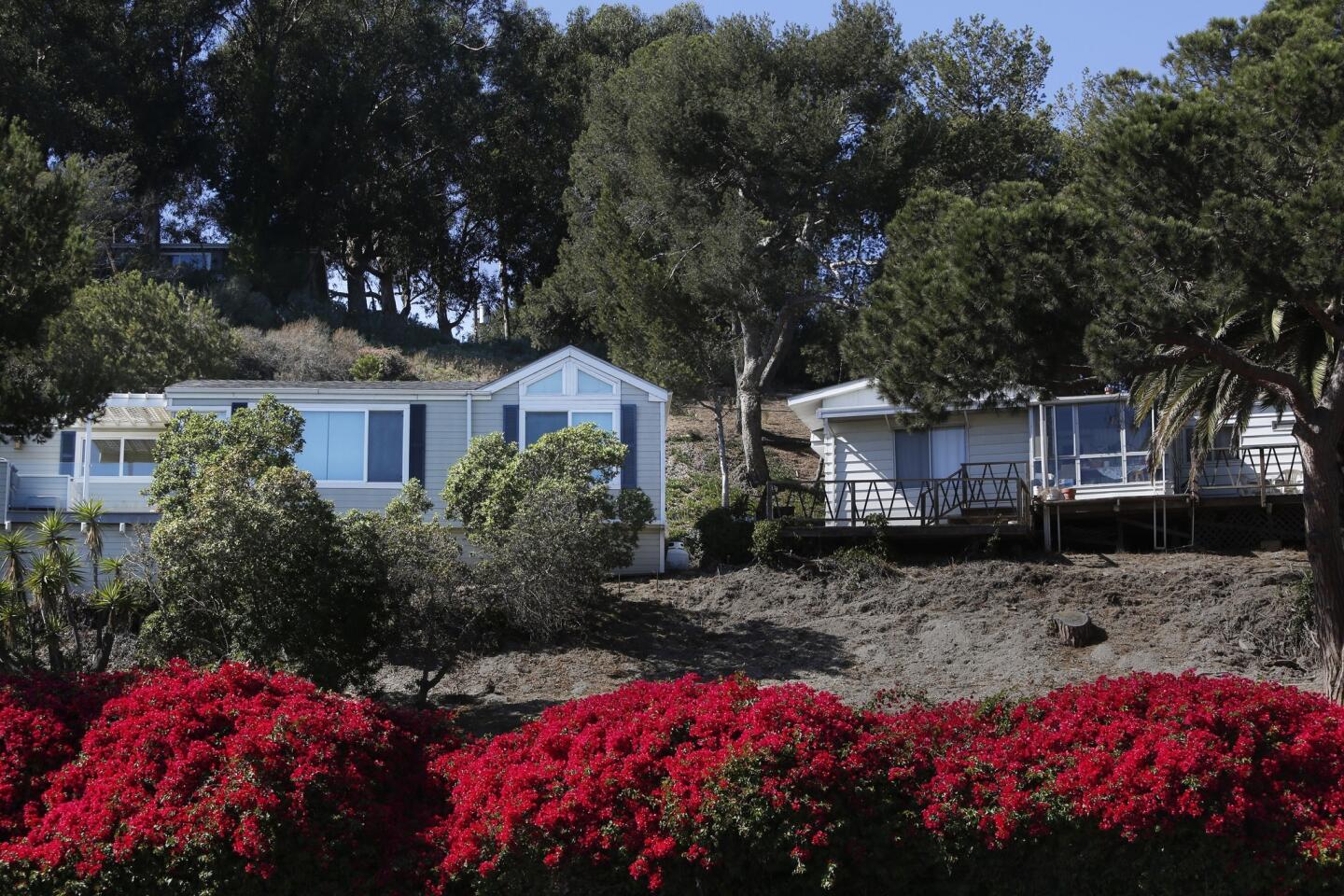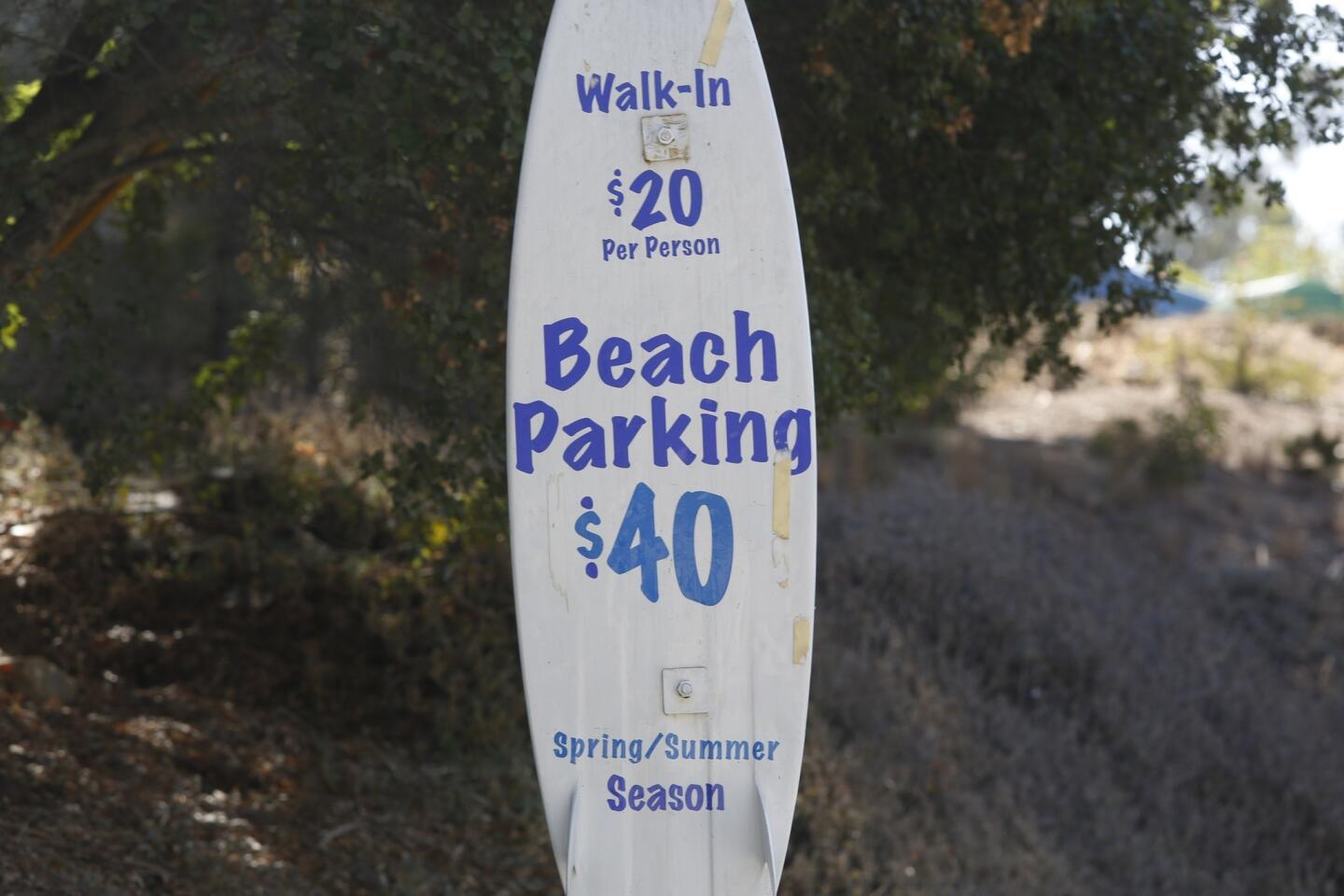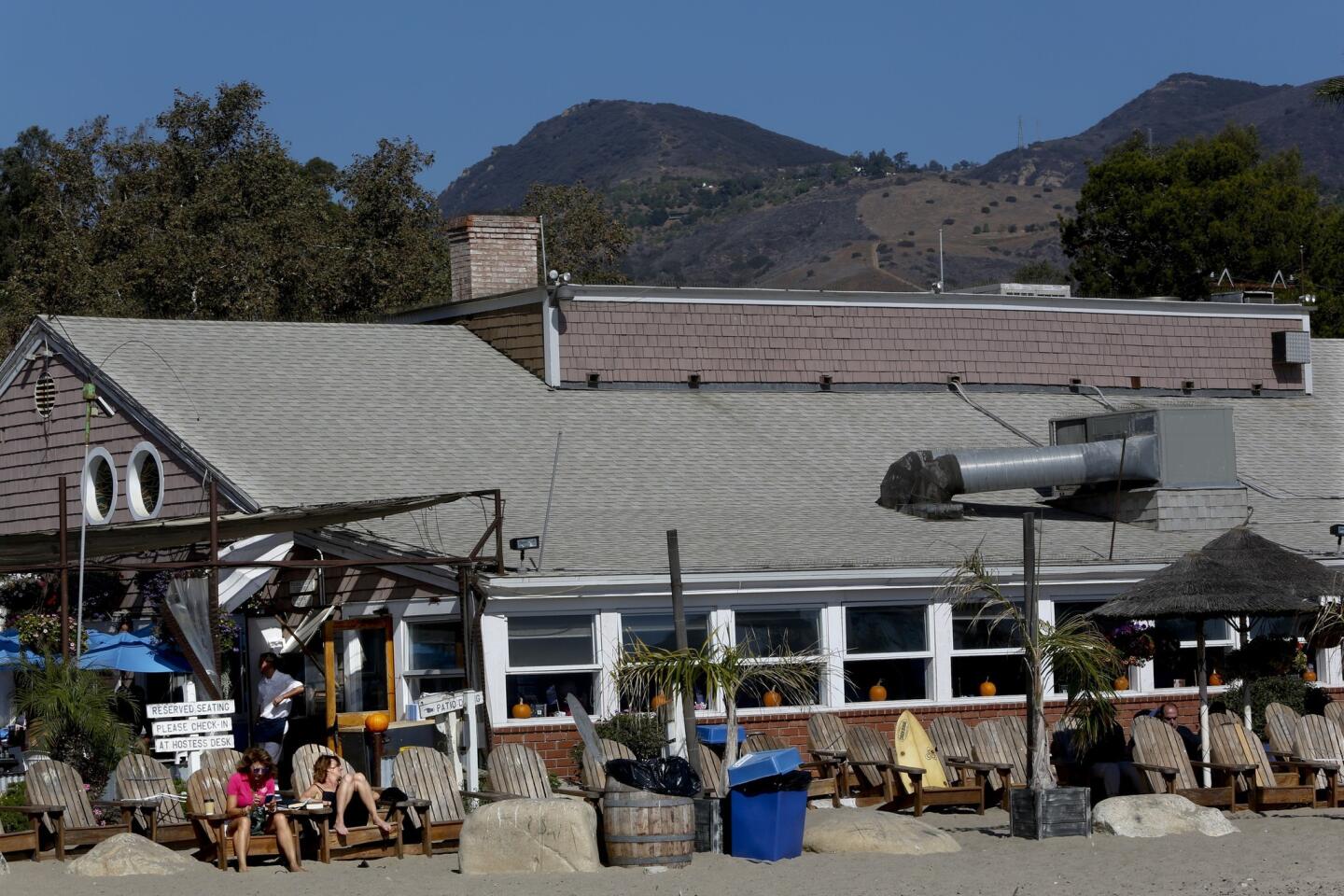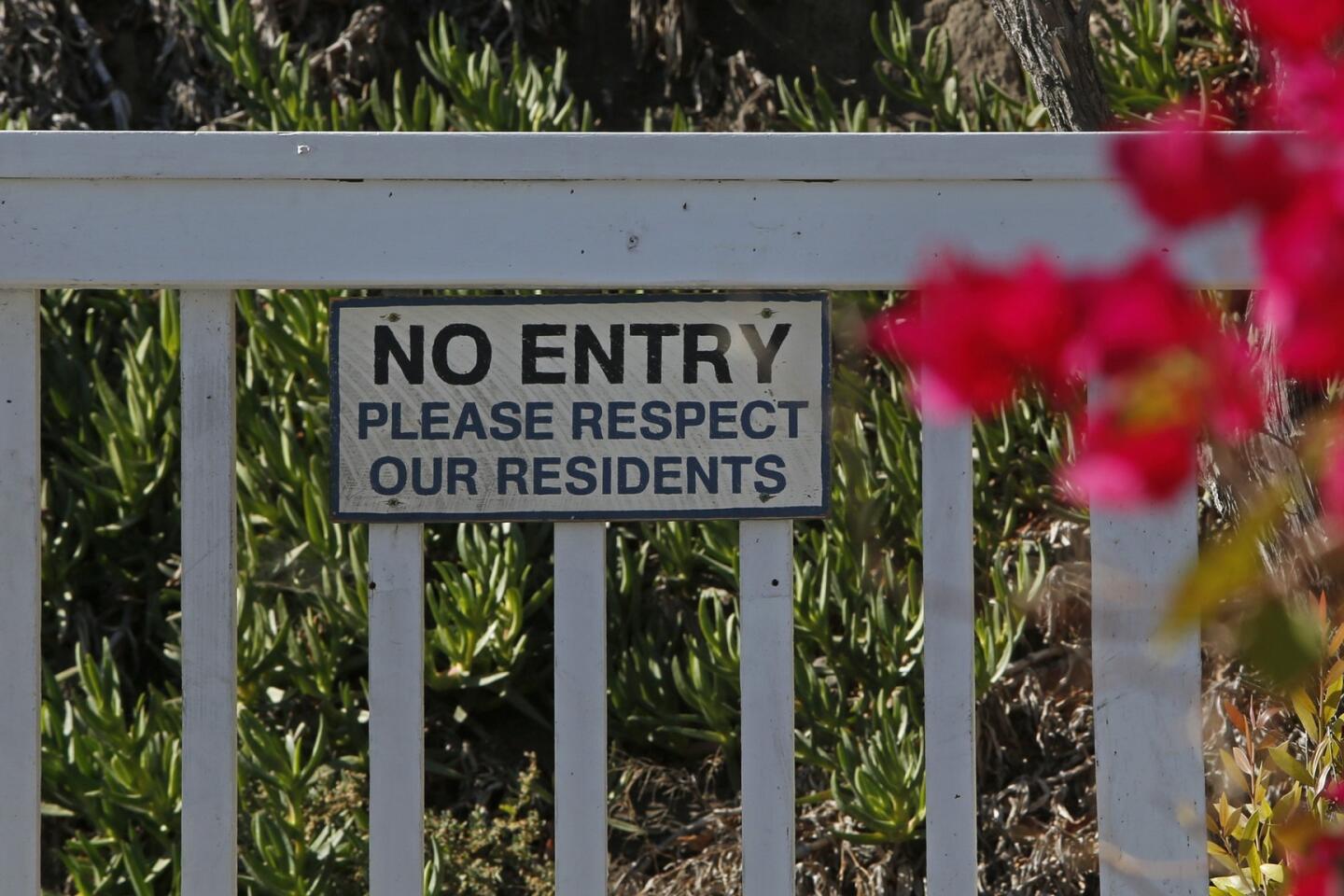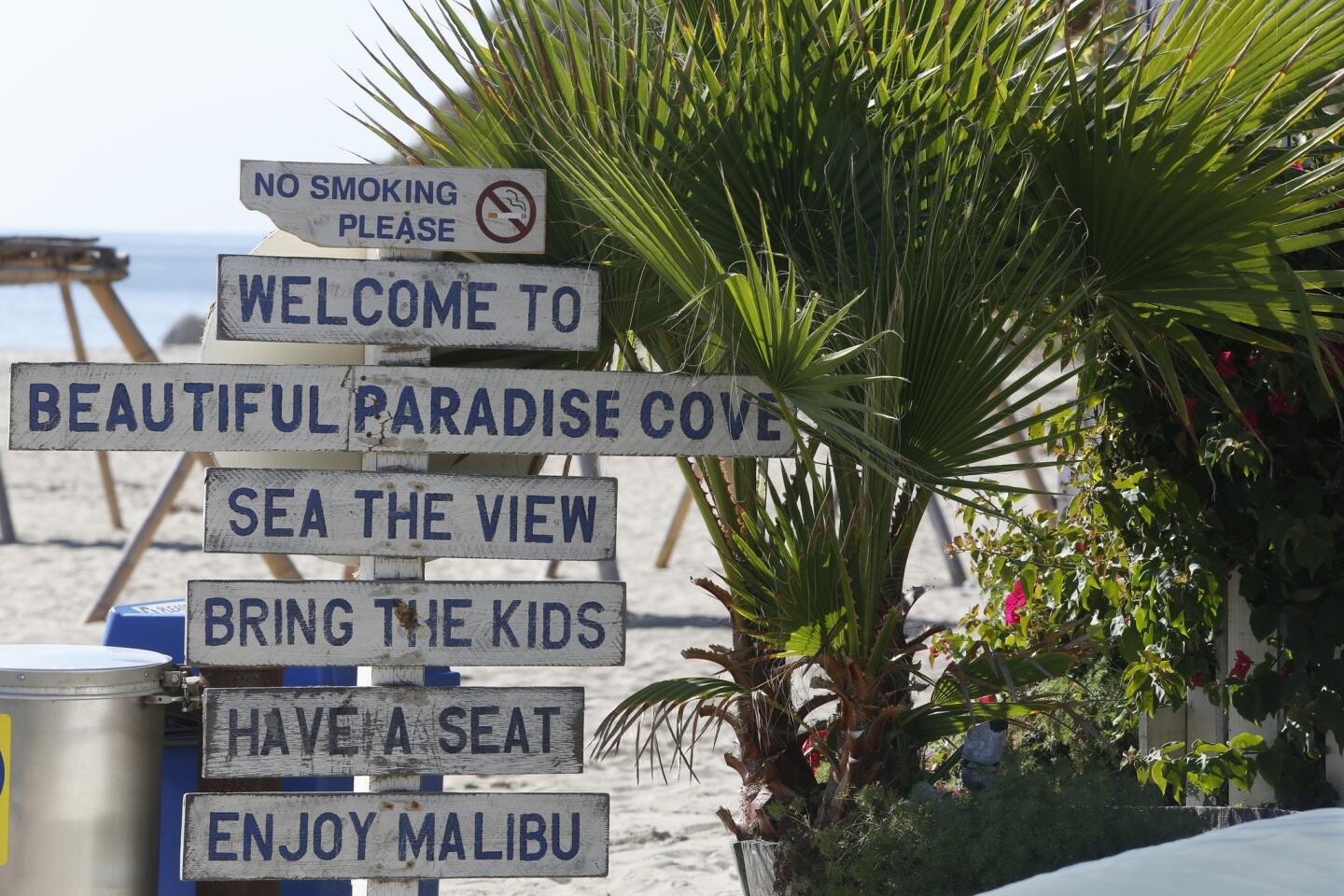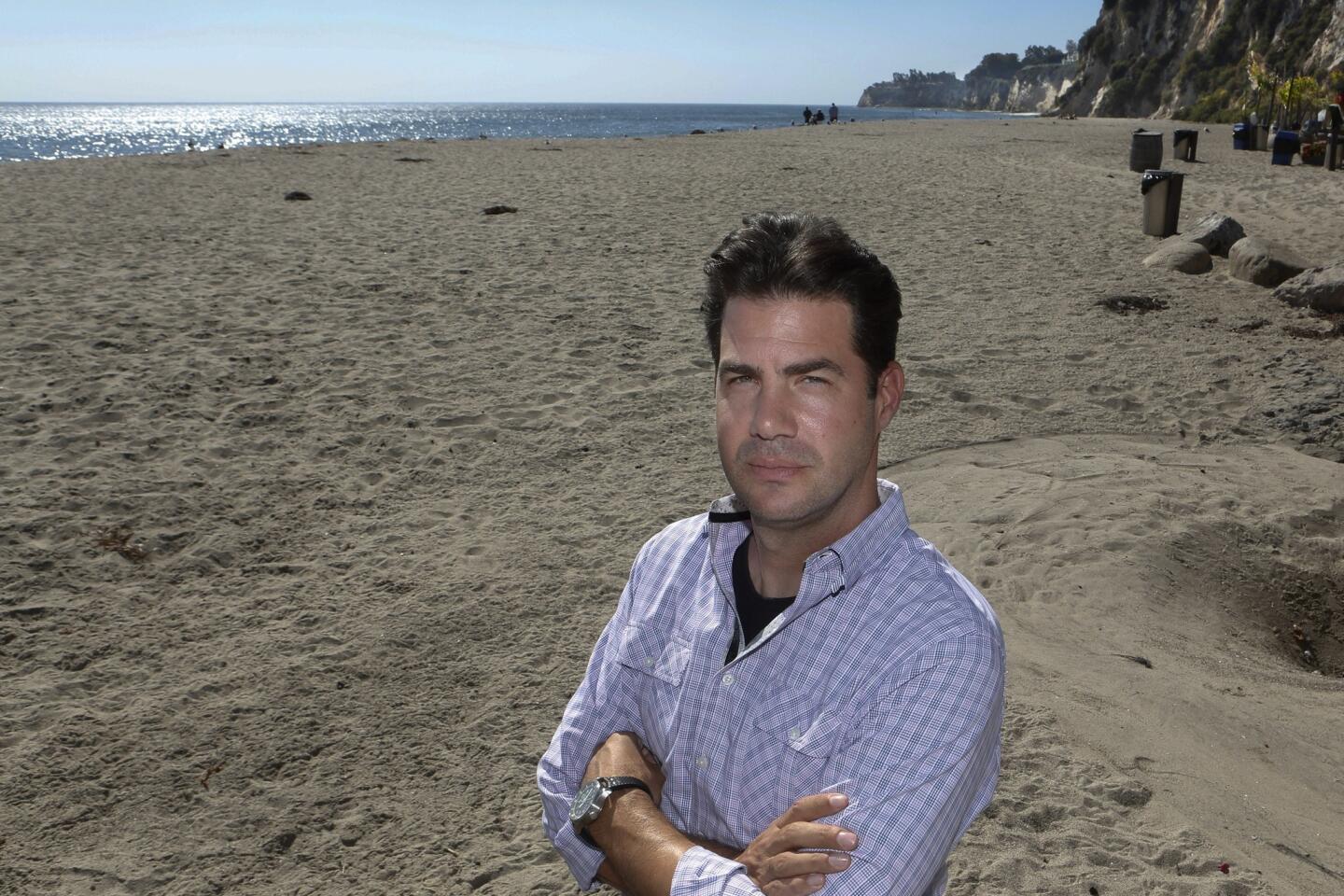Surfers regain access to Malibu’s Paradise Cove; pier to be unlocked
- Share via
In a victory for public access, the owner of Paradise Cove in Malibu has agreed to stop charging a $20 walk-in fee, remove all signs banning surfing and unlock a gate to the beach’s pier, the California Coastal Commission and the State Lands Commission announced Thursday.
The resolution, now in effect, ends a dispute with Kissel Co., which operates as Paradise Cove Land Co. Under the agreement, the company may continue charging a $40 parking fee.
The agencies sent letters dated Oct. 31 to the company, contending that it was violating the state Coastal Act and the terms of its state lease for the Paradise Cove pier. The agencies threatened to impose daily fines of $11,250.
“This is a triumph for public access and proof that the threat of fines is a very effective enforcement tool,” said Coastal Commission Chairman Steve Kinsey. “We’ve never seen a violation of this magnitude resolved so quickly. Christmas came early for the coast this year.”
Assembly Speaker Toni Atkins, who authored bills granting the authority to levy fines, said the new laws were being used as enforcement tools as planned. The so-called penalty authority went into effect July 1.
Surfers for years have contended that they have been harassed and charged exorbitant fees when they’ve attempted to enter the water at Paradise Cove. Those who tried to carry their boards across the sand were routinely turned away.
Only residents of the gated mobile home park at Paradise Cove and their guests were allowed to carry surfboards across the sand to the surf break, which is in public waters.
Over the last year, surfers formally complained to the Coastal Commission and the panel began to investigate. During a visit to the site, commission staff members located several unpermitted signs banning surfing and surfboards, and found that the pier, located on public tidelands, was closed off behind a locked gate.
The agencies’ investigation was sparked by multiple episodes, some involving members of the Black Surfers Collective, a nonprofit group that promotes diversity in the sport. Another involved Oren Dothan, a surfer who said he and a friend were required to pay $40 to a parking lot attendant in September to avoid a trespassing charge.
Reached in Budapest, Dothan was ecstatic about the outcome. “It’s amazing, and I’m very happy that what we did was successful,” he said.
“It’s fantastic that the Coastal Commission has used its authority in 100% of the way it was intended,” said Jeff Williams, who belongs to the Black Surfers Collective. He said Atkins and Gov. Jerry Brown, who signed the measures into law, have created “an entity to work for the people.”
Williams said he looked forward to the first south swell so that he and his buddies could surf Little Dume.
Even with its pricey parking fees, Paradise Cove — which features a cafe, a tidy beach and a moment in history as a setting in the 1970s television series “The Rockford Files” — has become a popular destination.
The beach is reached from the Pacific Coast Highway via private Paradise Cove Road, which for years was lined with signs painted on surfboards saying “No Surfboards.”
Kissel holds a 10-year lease on the pier that expires in 2019. Steven F. Dahlberg, president of Paradise Cove Land, did not respond to interview requests. Charles Lester, executive director of the coastal panel, commended Dahlberg for his cooperation.
“It saves everyone time and money to resolve these situations voluntarily,” Lester said, “and, most importantly, it’s the quickest way to restore the public’s ability to enjoy the beach.”
martha.groves@latimes.com
Twitter: @MarthaGroves
More to Read
Sign up for Essential California
The most important California stories and recommendations in your inbox every morning.
You may occasionally receive promotional content from the Los Angeles Times.
